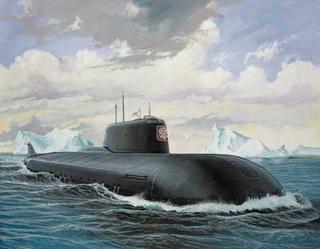 The Russian Kursk submarine (pictured to the left) met its tragic fate roughly five years ago - the anniversary will be next week. Tragically, another Russian submersible is today - in waters of a depth of 190 meters - facing a similarly trying rescue operation; the world can only hope for the best for them at this time.
The Russian Kursk submarine (pictured to the left) met its tragic fate roughly five years ago - the anniversary will be next week. Tragically, another Russian submersible is today - in waters of a depth of 190 meters - facing a similarly trying rescue operation; the world can only hope for the best for them at this time.Five years ago, I was very much exercised by the intersection between poetry and the immediacy of world events as conveyed by the news (and was living in Budapest).
At that time, I wrote a poem with disturbing echoes of today, not least the death of German tourists (then in an Air France crash, this time in Russian bus accidents).
You'll find the poem "Hull Losses" below; originally published in 2002 in my second collection, Cafe Alibi. The technical-actuarial term hull losses refers to plane crashes, but also the hulls of submarines; and by extension, I was thinking of Larkin, who lived in Hull, near a bleak seascape, and faced many different losses in his work.
As such, the poem is, I believe, the only one in English to concern itself with: a) aviation and submersible disasters; b) Internet pornography; c) Philip Larkin; d) murder; e) the intersection of these themes in terms of scopophilia and fragility of structures (including poems).
Hull Losses
First, the Concorde's tire burst, then
the Kursk went down in the Barents Sea,
all hands knocking out Morse
with spoons on bent hulls, the high-tech
surroundings inexplicably silent.
Rescue pods fail. Scan-addicts,
meanwhile, search for HQ babes,
dragging up thumbs from blue depths.
Cold Russian submariners morose
on an Arctic floor; exploded German
tourists in the burst supersonic;
a child penetrated, later dumped in a bag;
the convict injected; the neurological patient
whose eyelid, alone, is what still moves
(fluttering like the flap of a cut thumb).
Each a real presence: but not for all time.
What is our true quality, sly impermanence?
The flaw in us may be like a single hair
scanned in by accident - a stray line
fracturing the collector's perfect jpeg.
poem by Todd Swift
Comments